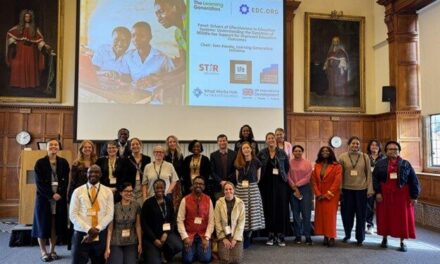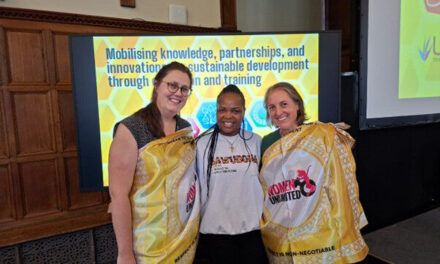Highlights from theme convenors of one of seven UKFIET 2025 conference themes, ‘Systems thinking’: Mathilde Nicolai, Cambridge Education and Yifei Yan, University of Southampton.
In an earlier blog, we expressed our excitement for the Systems Thinking sub-theme of this year’s UKFIET conference to serve as an intellectual platform to explore how systems thinking can help us better understand and drive transformative change in education systems. The sub-theme was received with overwhelming interest and enthusiasm. As a result, the number of papers, symposia, creative sessions, and quick-fire proposals submitted has hit a record high.
As the conference dates are fast approaching, we are thrilled and confident that the sessions under this theme will jointly advance our understanding of many of the key issues facing today’s global education landscape. By showing how theoretical insights can be applied in real-world settings, these contributions will also offer valuable lessons and inspirations for policy actions. The 22 sessions include 5 creative sessions, 8 symposia and 9 sessions gathering 32 papers and quick fires.
Some of the panels address systems thinking at the global level and engage in dialogue with the changing landscape of international aid in education. With disappointing funding cuts from traditional donors, it becomes imperative to gain a better understanding of how and to what extent alternative stakeholders, such as faith-based organisations, families and domestic governments, may fill the gap created. The new trend also demands a critical reflection and stock-taking of the roles international aid has played in the education sector so far, and how some of its side effects can be mitigated through a fresh reimagination of education systems that are characterised by more collaborative and transformative approaches. Focusing more directly on the issue of financing, the sub-theme also has papers and a symposium that look empirically into the public financial management systems, result-based financing schemes and education budgeting more generally.
Embracing another relatively recent trend of evidence-based policymaking, the sub-theme also includes a symposium, a creative session and several papers that scrutinise specifically the use of data for driving and supporting system change. In-depth examinations of such policy tools as the problem-solving approach and Embedded Evidence Labs, or initiatives such as Teaching at the Right Level and Teach for All, help generate valuable insights on how data can be meaningfully collected, analysed and incorporated into the decision-making processes.
Many of this sub-theme’s contributions are set to better comprehend how education policy interventions and reforms can move smoothly across different components of an education system. Some try to address the puzzle of scaling up by exploring what it takes for successful pilot projects to achieve similar effectiveness when reconfigured at a larger scale and when programme ownership is transferred to the government. One key point, as emphasised in many studies, is for reforms to be appropriately and adequately adapted to distinctive local contexts. Premising on this important recognition, a few papers and symposia explore explicitly which local actors can be meaningfully engaged, and how, in both policy design and implementation stages. To the extent that different actors hold varying levels and forms of power, the political economy that underpins reform negotiations and interpretations, therefore, becomes an important topic to investigate. Middle-tier actors, such as regional- or district-level bureaucrats, have long been a neglected component in the research on education systems. Therefore, uncovering how they are carrying out what kind of policy work and how they can be empowered to move beyond administrative compliance towards strategic leadership is another contribution that some papers and a symposium will make.
Taken together, sessions under this sub-theme exhibit myriad ways in which context, local ownership and power dynamics can be considered as the fundamental underpinning of a more comprehensive yet nuanced approach to systems thinking. Not only have they aptly answered our earlier call, but we see great promise for them to yield exciting and pertinent insights in many novel directions. With contributions from scholars, policymakers and practitioners across Asia, Africa, America and Europe, this sub-theme closely resonates with the UKFIET 2025 conference’s overarching theme. Not least, as the knowledge, partnerships and innovations to be mobilised and shared are coming from diverse continents, topical areas and disciplinary backgrounds, this sub-theme will offer a solid and stimulating ground to drive education system changes for the better in a rapidly evolving world.
We cannot wait for the conference to start and cordially invite you to be part of this global, interdisciplinary and transformative dialogue!




